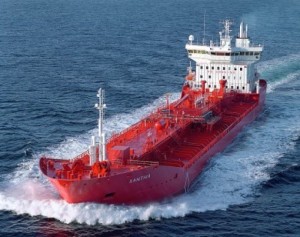 Bangalore:�India has filed an appeal with a regional grouping of 16 maritime nations seeking constitution of a Detention Review Panel to review the case involving the hold-up of an Indian ship by Iran.
Bangalore:�India has filed an appeal with a regional grouping of 16 maritime nations seeking constitution of a Detention Review Panel to review the case involving the hold-up of an Indian ship by Iran.The appeal is an indication that India may pursue a legal action against Iran for detaining the ship for 26 days, arguing that the detention was illegal.
India and Iran are members of the Indian Ocean Memorandum of Understanding on Port State Control (IOMOU), which is one among the nine regional port state control agreements in the world. These agreements were set up at the behest of the International Maritime Organization (IMO), the global maritime regulator, to check the operation of sub-standard ships in their respective regions.
A spokesman for IOMOU, comprising nations in the Indian Ocean rim, confirmed receiving India�s appeal.
The tanker named�Desh Shanti�owned by state-run�Shipping Corp. of India Ltd�was allowed to resume her journey on 6 September from Bandar Abbas port where she was detained since 12 August on allegations of causing pollution in Iranian waters. The ship was detained while on her voyage from Basrah in Iraq to Visakhapatnam on India�s eastern coast carrying crude for state-run oil refinerHindustan Petroleum Corp. Ltd�(HPCL).
Port state control is a check on visiting foreign ships to verify their compliance with international rules on safety and pollution prevention.
The detention review panel will comprise India, Iran and three other member countries of the IOMOU, according to the procedure for constituting such a review panel.
The panel will have to submit its findings and recommendations within 30 days, which will be binding on both India and Iran.
�If the appeal against the illegal detention of the ship is rejected by the IOMOU, India has the option of going to the International Maritime Organization (IMO) to press its case,� a spokesman for the shipping ministry said. �It will be up to the Shipping Corp. of India to pursue a legal course of action against the detention depending upon the outcome of the findings of the IOMOU or the IMO as the case maybe.�
A spokesman for Shipping Corp. declined to comment on this.
The ship was released after Shipping Corp. submitted a letter of undertaking to Iran�s Ports and Maritime Organization which guarantees payment towards clean-up operations if the spill is proved.
�Shipping Corp. has given an undertaking to Iran saying that if the pollution is proved, it will bear the cost for damages,� the ministry spokesman said.
�We have not paid Iran anything. Only a letter of undertaking has been given as per practice,� the Shipping Corp. spokesman said.
India feels that it has a strong case against Iran. Because, before allowing the tanker to sail based on the undertaking given by Shipping Corp., Iranian maritime authorities �unconditionally� downgraded all deficiencies on the ship, which it had cited earlier as the reason for causing pollution and for holding up the ship, said a spokesman for the directorate general of shipping (DGS), India�s maritime administration.
�The downgrading of deficiencies implied that they did not exist,� the DGS spokesman said. �Hence, there is no evidence to prove that the ship caused pollution.�
Iranian maritime authorities, however, asked the ship�s captain and chief engineer to give them a signed statement saying that the tanker caused a �minor pollution� before allowing the ship to sail.
�We said nothing doing,� the DGS spokesman said. �We did not relent.� Iran�s Ports and Maritime Organization could not be reached immediately for comment.
Iran had alleged that the ship was detained because it discharged its oily ballast water 30 miles from Iran�s Lavan Island in the Persian Gulf that �caused a 10-mile-long oil stain on the sea�.
In order to maintain stability during transit, ships fill their ballast tanks with millions of gallons of water. This water is taken from coastal waters in one region after ships discharge waste water or unload cargo, and discharged at the next port of call, when more cargo is loaded.
India is one of the few markets for Iran�s oil as the west Asian country struggles to sell crude in the face of western sanctions against its nuclear programme. Tehran says it is intended for peaceful purposes.
Supplies from Iran, India�s second biggest supplier, have dropped in the wake of sanctions as Western underwriters stopped insuring ships carrying Iranian crude from 1 July 2012. Iraq is now India�s second biggest supplier of crude. India imports 80% of its crude requirements and 60% of this comes from the Gulf countries.
The ship detention incident comes at a time when India is looking to buy more oil from Iran without breaching the sanctions as part of measures to shore up the rupee amid a record high current account deficit.
By Live Mint
The Iran Project is not responsible for the content of quoted articles.










